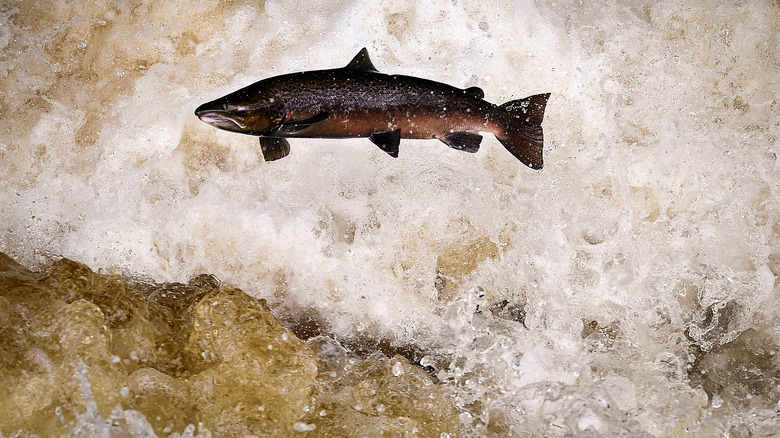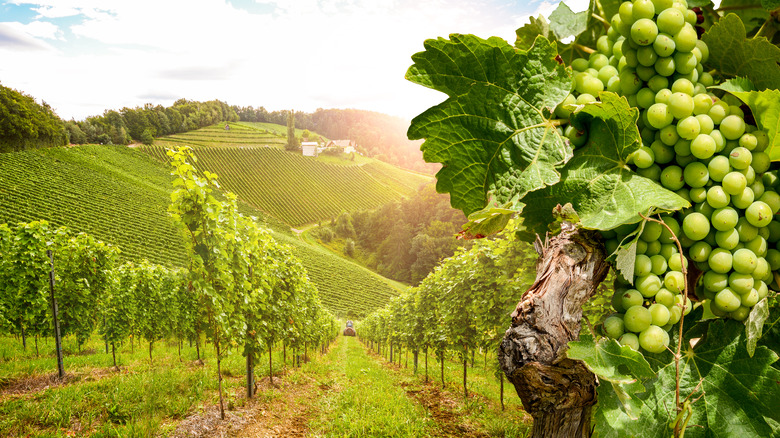The Truth About Salmon-Safe Alcohol
You may already be familiar with the idea of Dolphin-Safe tuna and seafood, but have you heard of Salmon-Safe? An initiative geared towards sustainably-minded alcohol makers in the Pacific Northwest, Salmon-Safe is an organization and eco-label that seeks to source the products used in brewing such as malt and barley in manners that keep rivers clean, thereby allowing the local salmon population to "thrive" (via the official website). The organization provides a certification and accreditation process that is currently being used for more than 95,000 acres of farmland across the west coast, from British Columbia to California.
Some may be confused as to how salmon and liquors are connected. The issue is actually an ongoing conflict as described by NBC News in 2010 in an article that focused on the impacts in the wine industry. Grapes require significant quantities of water to grow but also use water to mitigate weather issues. Northern California farmers use pumped river water during freezing spring nights to coat the growing grapes with a protective layer of ice, and without this protection there could be significant losses to crops.
That water, however, comes from the homes of the hook-mouthed coho salmon and the threatened steelhead trout. Once plentiful, the coho salmon is now a protected species under threat (via NOAA Fisheries). Salmon-Safe seeks to protect important species in California and beyond, while still supporting the many brewery and winery industries that need water to thrive.
How does Salmon-Safe work?
Salmon-Safe certifications are available for more than just wineries. Hopworks Urban Brewery in Oregon became the first brewery in the nation to join the salmon conservation efforts and get certified in 2015 (via Smithsonian Magazine). Christian Ettinger, founder and brewmaster of the organization shared, "Brewers are intensive users of resources, especially water ... so it's important for us to understand what it means to use those things and then do something about it." Followers have noted that bypasses leading the way in brewery-heavy Oregon with this standard may have an even stronger impact on the industry as a whole.
And while wineries and breweries may have begun this conservation movement, more producers are jumping on this pro-salmon bandwagon. Jason Parker, president of whiskey distillers Copperworks Whiskey explains that conservation is a key to their brand: "That's the type of thing that we want to open our distillery with by focusing on improving soil vitality, the quality of farms, rewarding small farming, and keeping the carbon footprint down from having to ship grains from all around the world," (via NWPB).
Beyond just water usage, local farms can also affect water quality in their areas with excessive runoff and fertilizer, which is where a new commitment to sustainability matters. At its heart, says Salmon-Safe's Kevin Scribner, "Salmon-Safe is substantially about water quality."

